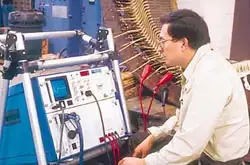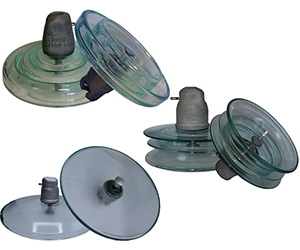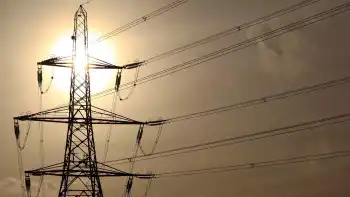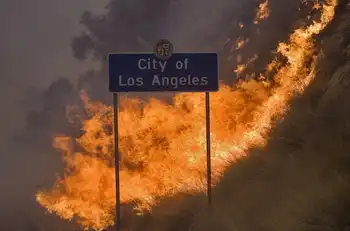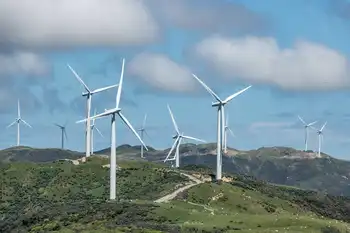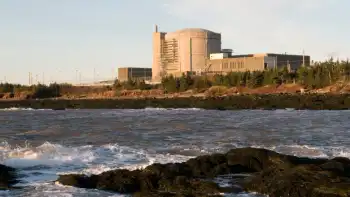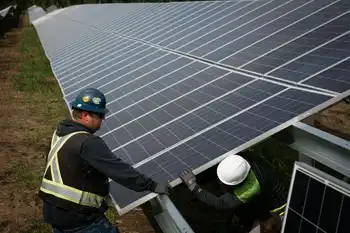The curious carbon offset market
By Mercury News
Electrical Testing & Commissioning of Power Systems
Our customized live online or in‑person group training can be delivered to your staff at your location.

- Live Online
- 12 hours Instructor-led
- Group Training Available
Well, don't count on an easy fix.
While celebrities like Al Gore and Gov. Arnold Schwarzenegger burnish their green credentials by buying so-called carbon offsets that fund projects like wind farms to make up for their energy excesses, environmental advocates nationwide criticize the effectiveness of the programs. Their concern: The carbon offset market, which is largely unregulated, lacks the standards or the oversight needed to make sure that the projects consumers send money to are actually helping clean the air.
"Right now the status is buyer beware," said Julia Bovey, spokeswoman with the Natural Resources Defense Council.
"There are a lot of companies out there... but there are concerns that have to do with whether the money is going to where they say it is going."
Since the industry is not monitored, it's difficult to say how many people are buying offsets, called that because they are supposed to "offset" the buyer's carbon emissions. But it's clear demand is rising.
Since 2002 the number of organizations selling carbon credits has grown by 200 percent, with online retailers expanding even faster, according to a report released last month by research firm EcoSystem Marketplace. Popular online travel sites like Travelocity and Expedia let customers offset carbon emissions from air travel by paying extra for a ticket.
Last year, Al Gore's "Inconvenient Truth" struck a nerve with audiences, raising interest in fighting global warming. And big companies like Google have announced plans to become "carbon neutral" and buy offsets.
Northern California's largest utility, PG&E, lets customers pay a few bucks extra on their monthly energy bills to offset their home's carbon emissions. The program, called Climate Smart, has more than 1,800 users, according to the company. PG&E, which started collecting money from customers in late June, is now trying to find a project worthy of its money.
"There are so many different programs out there that are doing this," said Robert Parkhurst, manager of the company's Climate Smart program. "You really have to dig down."
The company is now evaluating bids.
Selected projects must be in California, meet PG&E's criteria and pass muster with state regulators. Consumers can also go online to find a way to offset their carbon. Popular sites include Climate Trust, NativeEnergy and San Francisco's Terrapass.
The most popular projects among retail offset vendors, according to their Web sites, include sending money to build wind farms and methane digesters, which capture the greenhouse gas methane from cow manure to produce energy. Another, more controversial, method involves sending money to plant or protect trees.
Some environmentalists argue that tree planting is a dubious strategy because it takes years for a tree to grow big enough to clean the air. Proponents say that planting trees will eventually offset carbon emissions. Native Energy's Tom Stoddard, co-founder and general counsel, said his company doesn't invest in trees because of the controversy.
"We really stick to renewable energy projects," Stoddard said. "It's not really open to question that renewable energy reduces CO2 emissions."
Environmental group Clean Air-Cool Planet released a study on carbon offsets retailers late last year, ranking them on transparency and the credibility of their offsets.
After evaluating 30 retail offset providers on a 1-10 scale, only eight providers won a score of 5 or above. Terrapass was not one of the top companies. In an example of how confusing buying offsets can be, Terrapass's Web site has a page that prominently lists three dairies, including Atwater-based Gallo Farms. The top of the page reads: "TerraPass has reduced over 380 million pounds of CO2 pollution by funding clean energy projects." But Gallo Farms General Manager Carl Morris said the company hadn't received any funding from Terrapass for years.
When asked via e-mail about this, Terrapass Chief Environmental Officer Tom Arnold said that's true.
The company last sent money to Gallo n 2005, Arnold said. Gallo failed to meet Terrapass' standards, he said. Terrapass lists the dates it sent money to projects on another page, but even that page uses language that could make consumers think funding was ongoing. Arnold declined to discuss how Terrapass selected projects, but said the company is working on updated standards.
A number of organizations are rushing to create standards for projects, said Derik Broekhoff, a senior associate at the non-profit environmental policy think tank World Resources Institute.
"Unfortunately, it's perfectly easy for the buyer and seller in the transaction to be perfectly happy and yet it's the atmosphere that could get the short end of the stick," Broekhoff said.
The California Climate Action Registry, a non-profit founded by state law, is one group trying to create a state standard for companies buying and selling offsets.
"Everyday we get calls from people that say we hear that you certify really high quality offsets," said Diane Wittenberg, president of the registry. "There's much higher demand than supply."
The registry, which has been working on the standards since 2003, does not have any certified projects. The program has talked with international organizations about ensuring that tons of carbon emissions are tracked accurately, Wittenberg said.
Ricardo Bayon, managing director of Ecosystem Marketplace, said in an e-mail interview that rising scrutiny on the industry has forced companies to pay closer attention to these issues.
"Right now the voluntary market is in a very chaotic disaggregated phase of development, one that is changing rapidly," Bayon said. "Standards are emerging, and it is only a matter of time until we have credible third parties certifying offsets and doing so in a way that allows consumers to have a reasonable assurance that the credits they are buying do truly reduce emissions."
Stanford University climate expert Steve Schneider agrees, saying that the market will demand a reliable system that measures offsets.
"We're talking about a potential trillion-dollar market, this just can't be left the way it is," he said.






